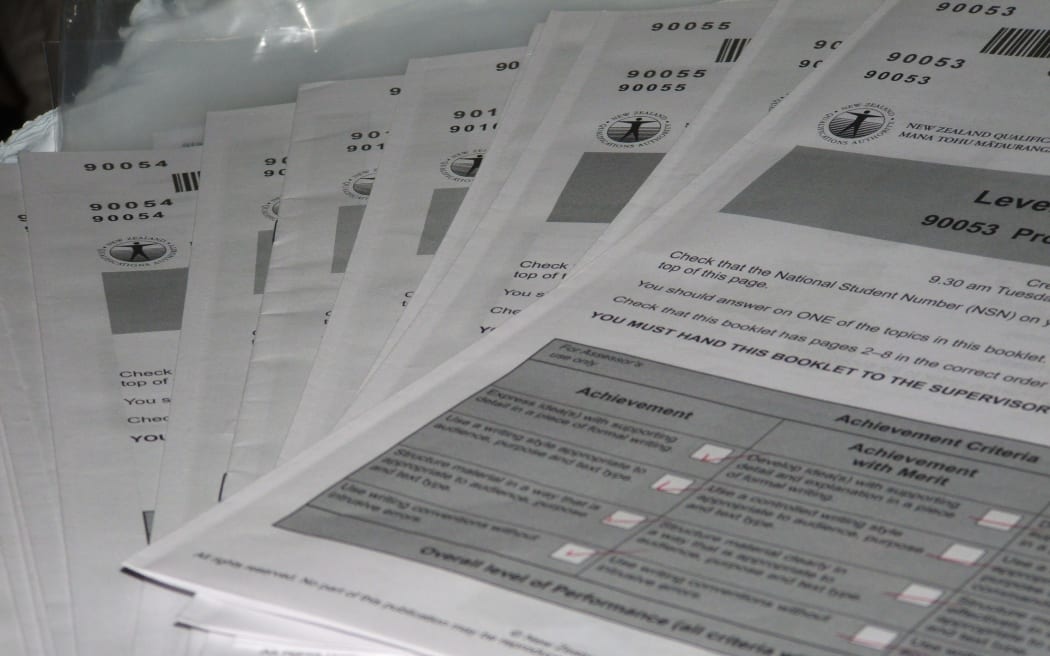
Photo: Supplied
Provisional results indicate NCEA pass rates dropped across the board for the third consecutive year in 2023.
The Qualifications Authority said three years of Covid-related disruption were probably to blame.
Students have been able to access their NCEA results since early Wednesday morning. By 10.30am, the authority said about 28,000 of 160,000 eligible students had done so.
NZQA deputy chief executive for assessment Jann Marshall said national results would be available in April, but provisional figures showed a drop in achievement.
"The provisional attainment rate in 2023 is lower than in 2022 for Year 11 students entered for a full NCEA Level 1 assessment programme, and for Year 12 students working towards NCEA Level 2. Attainment amongst Year 13 students of NCEA Level 3 and University Entrance was slightly lower than in 2022."
"These changes are likely to reflect the compounding impact of three years of disruption from Covid-19. No Covid-related adjustments were made to the qualification or award requirements in 2023," she said.
Marshall said attainment figures were provisional because students could request a review or reconsideration of their exam papers, additional results could be received from summer school programmes, and schools might submit corrected or late-reported results from internal assessment.
NZQA figures showed NCEA and UE achievement rates peaked in 2020 for all NCEA levels and University Entrance when extra credits were available, falling in 2021 and again in 2022 as the number of extra credits declined and fewer students were eligible for them.
Despite the drops, the 2021 and 2022 level three and University Entrance achievement rates were higher than in 2019, before the pandemic began.
The authority said last year's NCEA and scholarship exams were across 138 exam sessions in 469 exam centres, including seven in the Cook Islands, one on Niue, and three in prisons.
It said other than the digital exam platform reaching capacity with the NCEA Level 1 English exam on 10 November, the overall operation of exams proceeded smoothly.
Pandemic effects lingering - PPTA
Kate Gainsford, chairperson of the Post Primary Teachers Association's Principals' Council, told RNZ the pandemic was still harming teenagers' NCEA results.
"Although we didn't have lockdowns, we still had Covid present in our communities and some of that's evidenced in attendance rates across the country," she said.
"That lag of learning that was missed in the previous two years obviously is still lingering."
Gainsford said nobody should be surprised it would take more time to recover from the effects of Covid on young people's education.
"It's really going to depend on what that drop actually looks like and then what we can do to remedy it in terms of next steps."
She said rather than comparing last year's results to recent Covid-affected years, the critical comparison would be with NCEA achievement rates before the pandemic began.
Gainsford said schools accepted that the extra credits available in previous years to make up for Covid-related disruption to learning would not continue to be offered.
"They had to be withdrawn at some point and there was not a hue and cry around that last year," she said.
She said some students who expected to enter tertiary study this year might need help getting extra credits to ensure they achieved an NCEA qualification.
"This is the season for people to be completing their summer school arrangement because some of them will be doing that through Te Kura and looking back and seeing if there are those follow-ups for reconsiderations."







